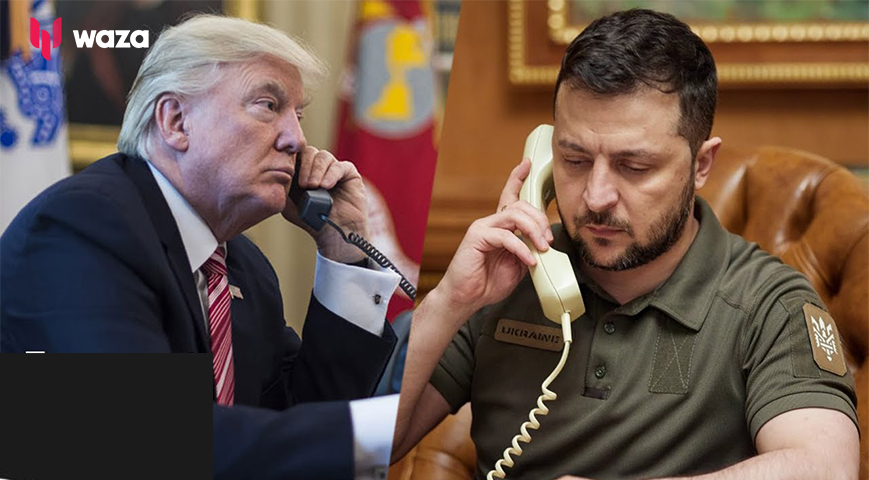On the eve of the third anniversary of Russia’s invasion, Ukrainian President Volodymyr Zelensky expressed his willingness to step down if it would guarantee Ukraine’s entry into NATO.
Despite Ukraine’s persistent calls for membership, the alliance remains hesitant to commit.
“If my resignation ensures peace and NATO membership for Ukraine, I am ready to do it,” Zelensky stated at a press conference in Kyiv.
Tensions between Zelensky and U.S. President Donald Trump have escalated following high-level talks between U.S. and Russian officials in Saudi Arabia—talks that excluded Ukraine and European leaders. Trump has labeled Zelensky a “dictator” and falsely claimed Ukraine initiated the war, despite contrary evidence. Zelensky, however, dismissed Trump’s remarks and affirmed he would stand for re-election once martial law ends.
Seeking to bolster Ukraine’s security, Zelensky urged Trump to meet with him before engaging with Russian President Vladimir Putin. He emphasized the importance of U.S. security guarantees and hinted at progress in negotiations granting the U.S. preferential access to Ukraine’s critical resources.
Meanwhile, European leaders are reassessing their defense strategies. Germany’s election winner, Friedrich Merz, underscored the need to strengthen Europe’s military capabilities, citing diminishing U.S. interest in European security. NATO Secretary-General Mark Rutte and EU leaders are coordinating a special summit on March 6 to discuss Ukraine’s future.
In Moscow, Kremlin spokesman Dmitry Peskov welcomed U.S.-Russia dialogue but ruled out any territorial concessions. Putin, addressing Russian troops, framed the invasion as a divine mission to protect Russia. Overnight, Russia launched a record 267 drones at Ukraine, with most intercepted.
Diplomatic efforts continue, with upcoming U.S.-Russia talks and discussions between Russian Foreign Minister Sergei Lavrov and Turkish officials.









